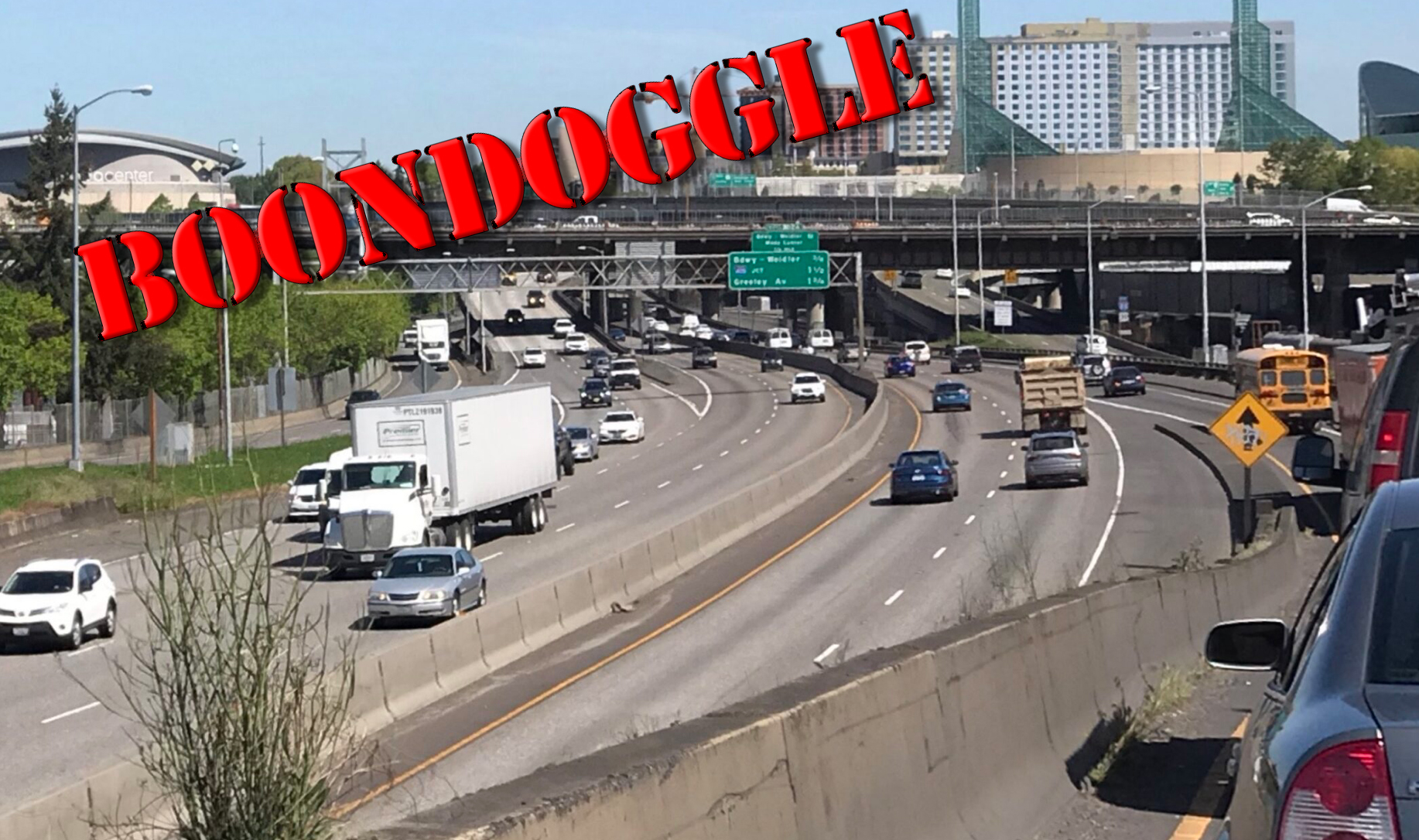The Oregon Department of Transportation doubly violated federal law by not only refusing to study cost-effective alternatives as part of its plan to double the width of Interstate 5, but also not being transparent with the public about the impacts of the plan, according to court papers filed in a new suit against the project.
It's the second lawsuit seeking to halt the so-called Rose Quarter Improvement Project, which the state says will “improve safety and congestion,” but amounts to an expansion of a freeway that runs through a predominantly Black neighborhood.
Advocates want the agency to conduct a full Environmental Impact Statement that more deeply analyzes the climate and air pollution impacts of the proposed freeway widening than the less-rigorous environmental assessment that the FHWA approved in March.
The goal of the suit is to force the state to assess “the direct, indirect, and cumulative impacts of proposed actions” and to get ODOT to consider traffic-reduction methods such as congestion pricing, transit alternatives, or narrowing the right-of-way which were left out of the approved environmental assessment.
“This lawsuit is our community’s opportunity to prevent ODOT from shoving all the air pollution and traffic that an expanded freeway brings through the recovering Albina neighborhood,” Chris Smith, co-founder of No More Freeways, said in a statement.
Albina, one of Portland’s oldest Black neighborhoods, is still reeling from the urban renewal that came with the construction of Interstate 5 in the 1950s and '60s. Hundreds of Black families, businesses, and churches were displaced to make way for the highway, according to the Rose Quarter project page. The current improvement project is supposed to help rectify some of the damage by capping highways and reconnecting this neighborhood with the rest of the city.
But advocates say capping highways while also widening them only puts residents at more risk of the impacts of climate change, as widening highways can lead to worsening air quality.
“Every dollar we put into freeway widening is a wasted dollar that could go into reducing carbon or providing sustainable mobility some other way,” said Smith.
The $1.9-billion Rose Quarter project is just part of a larger grouping of highway plans that include I-205 Abernethy Bridge Project, the OR 217 Auxiliary Lanes and Hall Blvd Bike/Ped Crossing Project, the Interstate Bridge Replacement Program, and the I-5 Boone Bridge Replacement Project, according to the project page.
Recently, the federal DOT, through its Reconnecting Communities and Neighborhoods program, awarded the Rose Quarter Project $450 million to build highway caps and create safer streets over the existing highway facility in Albina. Advocates say adding things like auxiliary lanes goes against DOT’s instructions for how Reconnecting Communities funds should be used.
“Projects receiving Reconnecting Communities and Neighborhoods grant funding cannot be used for additional through travel lanes for single-occupant passenger vehicles or highway expansion,” according to the award letter. As reported by Streetsblog, Auxiliary lanes can be a shorthand for widening lanes, ultimately adding more vehicles on the road.
No More Freeways and other organizations are happy with RCN funds going towards the highway caps, but ODOT also asked for an additional $750 million in infrastructure grant which Smith said would be used for both the caps and highway widening efforts. To make matters worse, U.S. DOT has already earmarked that grant application as “highly recommended.”
“You should not be extending the halo of ‘highly recommended’ for reconnecting communities and neighborhood [funds] to the widening portions of this project, because widening it is exactly the opposite of what reconnected communities is about,” Smith said.
This is the second lawsuit advocates have filed this year against the interstate project. In May, community advocates sued alleging that no congestion pricing or transportation demand management plan was included in the approved improvements project, nor were either “analyses” included in the Environmental Assessment, that was approved by Federal Highway Administration in May.
Lawsuits can take time to be settled. In the meantime, Smith hopes that advocates connect the dots around ill-fated highway redesigns that can add more cars on the road.
“I'd love to see [advocates] start to win some test cases and establish law so we don't have to fight the same questions on every single freeway widening project,” Smith said, adding that to do that residents also need comes to terms with the fact that “we're just not going to meet our climate goals without driving less.”






